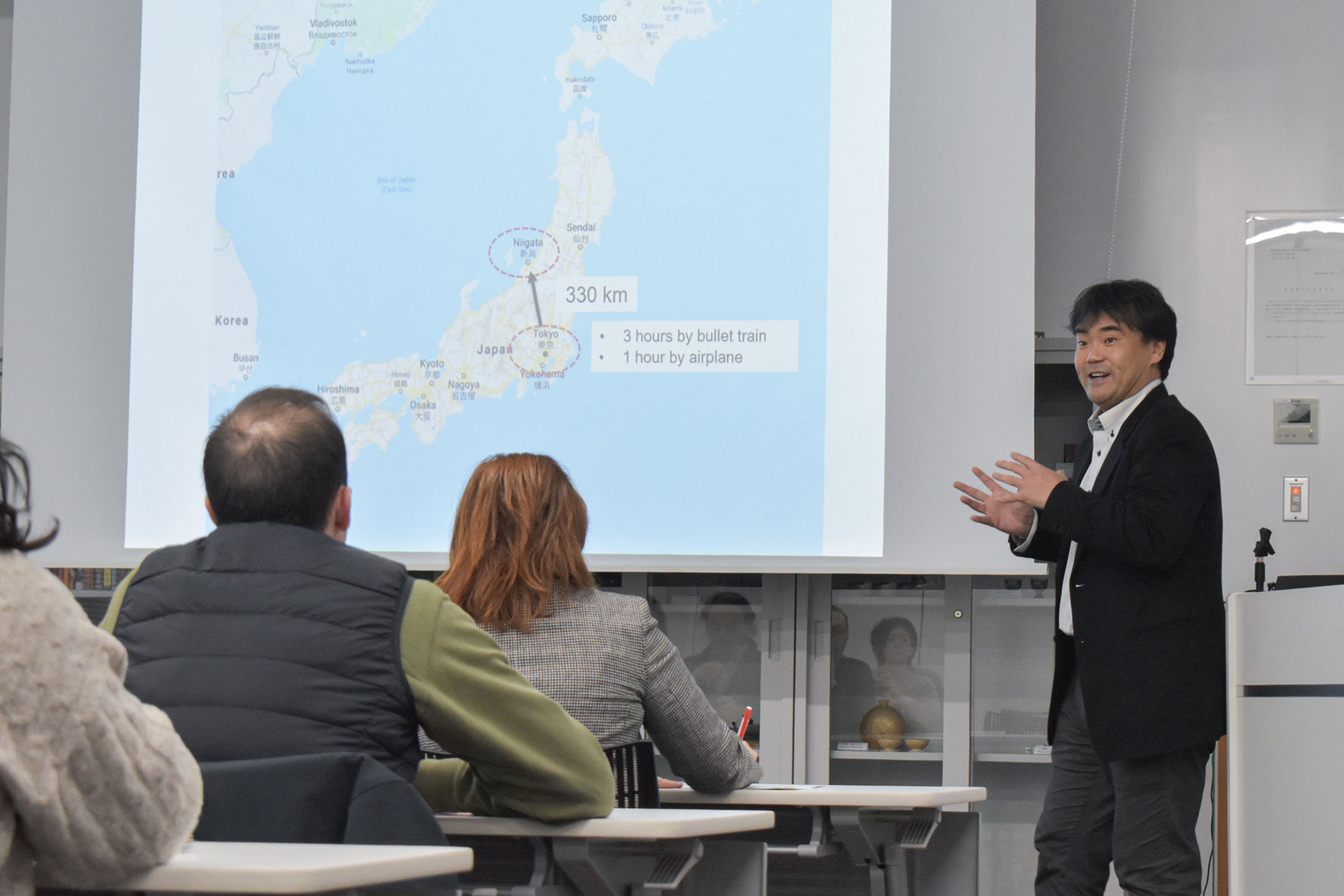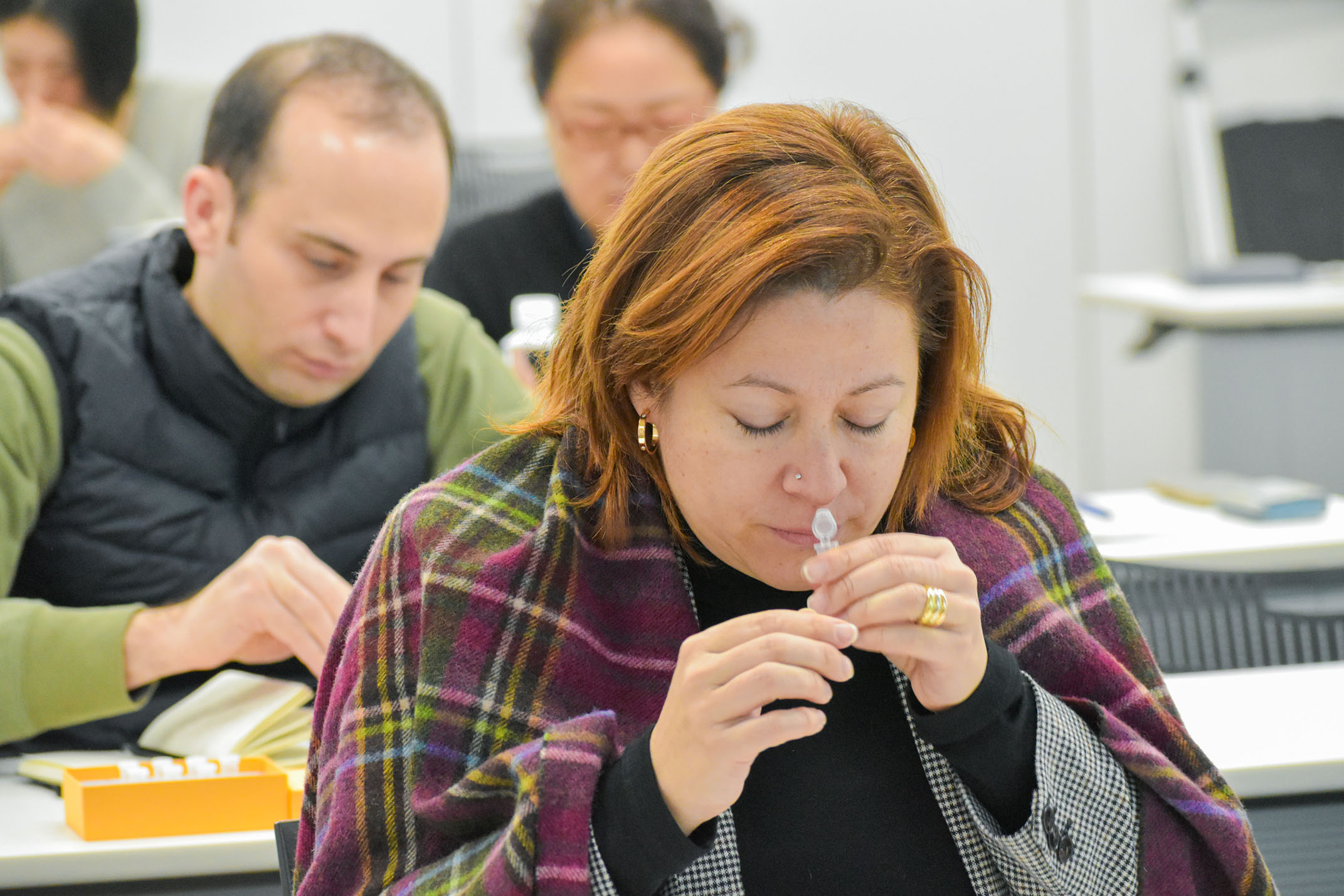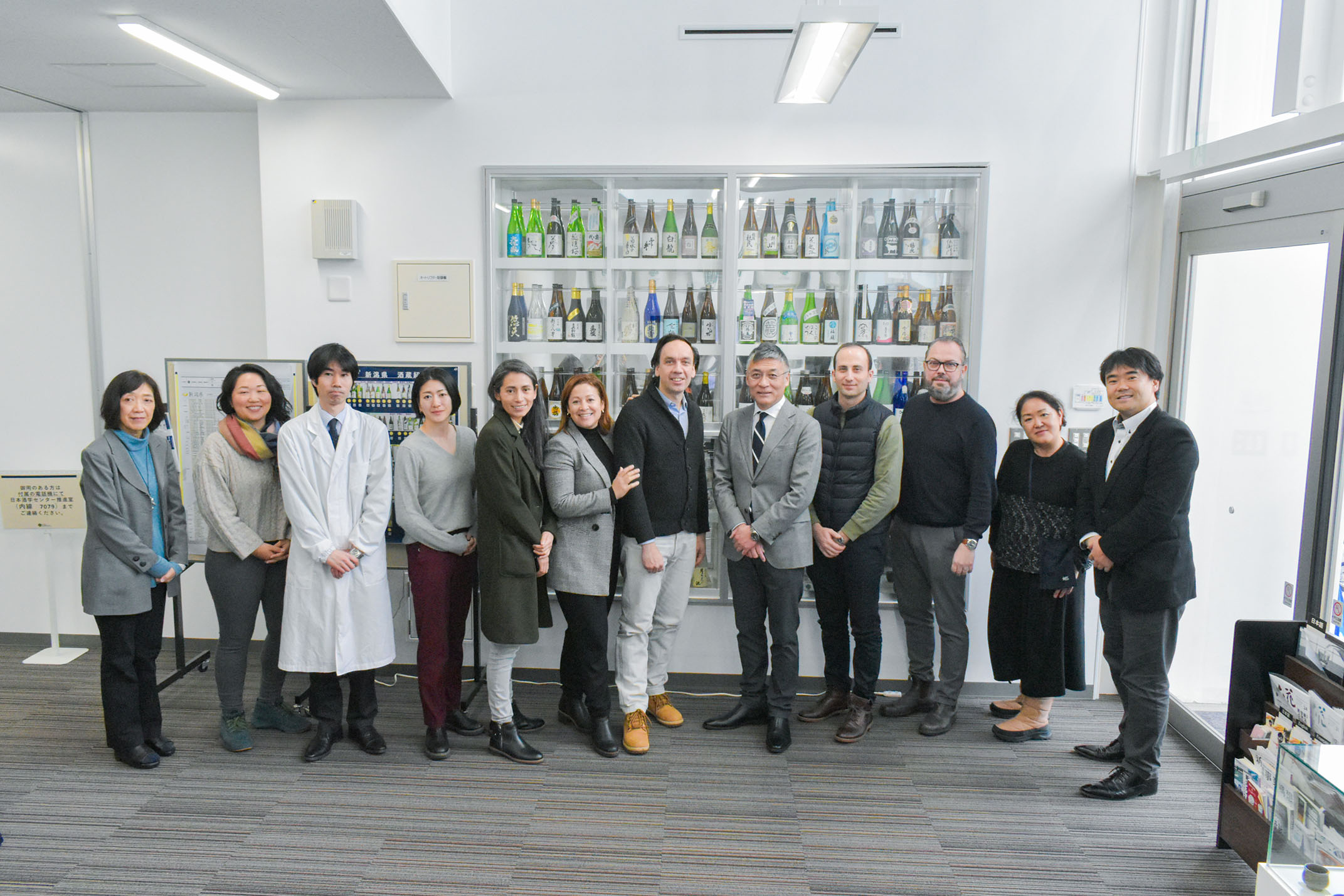Overseas wine industry specialists visited the Sakeology Center
Five overseas wine industry specialists invited by the Japan Sake and Shochu Makers Association (*) visited the Sakeology Center on January 29, 2025.
The five invitees were first briefed by KISHI Yasuyuki, Ph.D., Vice Director of the Sakeology Center, on the background of the Center’s establishment, its activities related to Sakeology, and sake, followed by the tour of the exhibition space, laboratories, and other facilities led by HIRATA Dai, Ph.D., Vice Director of the Center.
 Explanation of the Sakeology Center by Dr. Kishi, Vice Director
Explanation of the Sakeology Center by Dr. Kishi, Vice Director
The invitees also participated in sensory training to recognize sake’s distinctive ginjo aroma and off-flavors, using aroma samples, and furthermore tasted sakes brewed with the same raw materials and fermentation conditions, but with different yeast strains only.
In the end, the invitees discussed the sake they tasted and food pairings with sake from the unique perspectives of experts in the wine industry.
 Flavor sensory training experience using aroma samples
Flavor sensory training experience using aroma samples

The purpose of this invitation project of the Japan Sake and Shochu Makers Association is to provide professionals at the forefront of the wine industry with specialized knowledge of sake, not only through theoretical learning but also by visiting breweries to deepen their understanding.
The invitees included Sören Polonius, Co-Director of the Exam and Education Committee of the Association de la Sommellerie Internationale (ASI), Tiago Paula, President of the Portuguese Sommelier Association, Vincenzo Arnese, who has been awarded Best Sommelier at the GQ Food & Drink Awards in the UK and represented the UK in the international sommelier championship in 2024, Almudena Alberca, the first female Master of Wine in Spain, and Alicia Ahuactzi Martinez, the winner of the 2024 Mexico Sake Academy.
During this project, the invitees also visited the rice polishing facility and rice fields.
Tiago Paula remarked about the Center, “The academic and scientific approach stood out, providing deep insights into the factors influencing sake quality. Systematic research like this is essential for increasing the international recognition of sake and for professionals seeking more specialized knowledge.”
※This article is based on the press release from the Japan Sake and Shochu Makers Association.
(*)The official website of the Japan Sake and Shochu Makers Association is here

